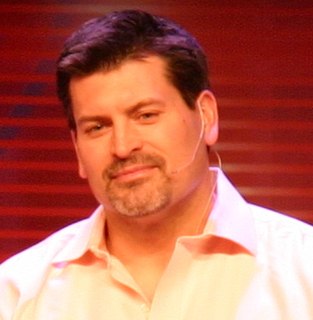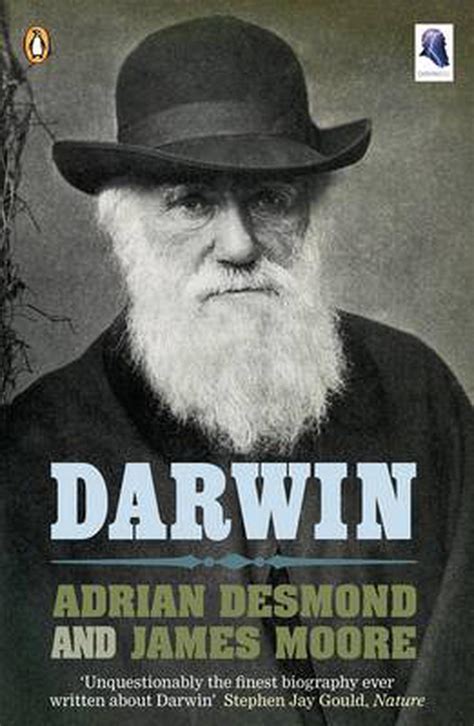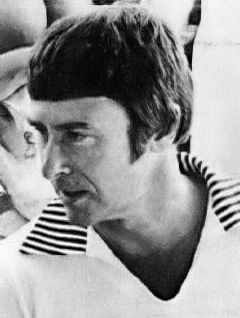A Quote by Elizabeth Janeway
How can you communicate your thoughts or demonstrate your hypotheses by conventional means when all the values and standards that you want to challenge are built into those means? Science and new technology today like to declare that they encourage 'lateral thinking,' new ways of seeing and putting data together - but all systems have an inbuilt resistance to what has not been programmed into them through the premises on which their rules are based.
Quote Topics
Based
Been
Built
Challenge
Communicate
Conventional
Data
Declare
Demonstrate
Encourage
How
Hypotheses
Lateral Thinking
Like
Means
New
New Technology
New Way
New Ways
Our Thoughts
Premises
Programmed
Putting
Resistance
Rules
Science
Seeing
Standards
Systems
Technology
Them
Thinking
Those
Thoughts
Through
Today
Together
Values
Want
Ways
Which
Your
Related Quotes
It is science that brings us an understanding of the true complexity of natural systems. The insights from the science of ecology are teaching us how to work with the checks and balances of nature, and encouraging a new, rational, limited-input, environmentally sound means of vineyard management that offers a third way between the ideologically driven approach of Biodynamics and conventional chemical-based agricultural systems.
Of all forms of mental activity, the most difficult to induce even in the minds of the young, who may be presumed not to have lost their flexibility, is the art of handling the same bundle of data as before, but placing them in a new system of relations with one another by giving them a different framework, all of which virtually means putting on a different kind of thinking-cap for the moment. It is easy to teach anybody a new fact...but it needs light from heaven above to enable a teacher to break the old framework in which the student is accustomed to seeing.
Modern societies accepted the treasures and the power offered them by science. But they have not accepted - they have scarcely even heard - its profounder message: the defining of a new and unique source of truth, and the demand for a thorough revision of ethical premises, for a complete break with the animist tradition, the definitive abandonment of the 'old covenant', the necessity of forging a new one. Armed with all the powers, enjoying all the riches they owe to science, our societies are still trying to live by and to teach systems of values already blasted at the root by science itself.
. . . in America, we have achieved the Orwellian prediction - enslaved, the people have been programmed to love their bondage and are left to clutch only mirage-like images of freedom, its fables and fictions. The new slaves are linked together by vast electronic chains of television that imprison not their bodies but their minds. Their desires are programmed, their tastes manipulated, their values set for them.
Some people are aware of another sort of thinking which... leads to those simple ideas that are obvious only after they have been thought of... the term 'lateral thinking' has been coined to describe this orther sort of thinking; 'vertical thinking' is used to denote the conventional logical process.
Reading is merely a surrogate for thinking for yourself; it means letting someone else direct your thoughts. Many books, moreover, serve merely to show how many ways there are of being wrong, and how far astray you yourself would go if you followed their guidance. You should read only when your own thoughts dry up, which will of course happen frequently enough even to the best heads; but to banish your own thoughts so as to take up a book is a sin against the holy ghost; it is like deserting untrammeled nature to look at a herbarium or engravings of landscapes.
You have to imagine a world in which there's this abundance of data, with all of these connected devices generating tons and tons of data. And you're able to reason over the data with new computer science and make your product and service better. What does your business look like then? That's the question every CEO should be asking.
I have three boys. And I wanted to make sure it connected with them and then those guys who grew up like me, in environments like me.And then I knew something about science that your New York Times reader would be interested in. So I was thinking about it in multiple ways: I'll connect with the people who grew up like me first, and then the New York Times reader will be interested in the science because it's so good and they want to be "in the know."
Science was tearing through the 'fine-spun ecclesiastical cobwebs' to behold a new cosmos, in which our Earth is merely an 'eccentric speck' - a world of evolution 'and unchanging causation'. It invited new ways of thinking. It demanded a new rationale for belief. With science's truths the only accessible ones, 'blind faith' was no longer admirable but 'the one unpardonable sin'.
People say I don't have great tools. They say that I can't throw like Ellis Valentine or run like Tim Raines or hit with power like Mike Schmidt. Who can? I make up for it in other ways, by putting out a little bit more. That's my theory, to go through life hustling. In the big leagues, hustle usually means being in the right place at the right time. It means backing up a base. It means backing up your teammate. It means taking that headfirst slide. It means doing everything you can do to win a baseball game.



































